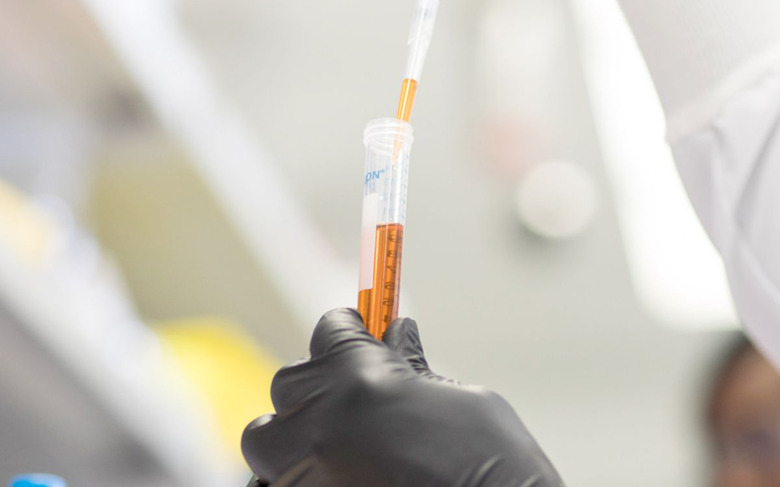CDC Study Finds COVID-19 Vaccines' Huge Impact - Including Symptom-Free Cases
A new CDC study into how effective COVID-19 vaccines are at preventing infection with coronavirus suggests immunization could be even more impactful than the initial trials concluded. The study looked at those vaccinated with the Pfizer-BioNTech and Moderna mRNA drugs, tracking infection rates among high-risk groups of healthcare personnel, first responders, and other essential workers.
That cohort was selected, the CDC says, because members in each group would be more likely to encounter the COVID-19 virus given their occupations. In total, 3,950 participants took part in the study, across six states, and through a 13 week period from mid-December 2020 to mid-March of this year.
"Results showed that following the second dose of vaccine (the recommended number of doses), risk of infection was reduced by 90 percent two or more weeks after vaccination," the CDC said today. "Following a single dose of either vaccine, the participants' risk of infection with SARS-CoV-2 was reduced by 80 percent two or more weeks after vaccination."
Although Pfizer-BioNTech and Moderna both released Phase 3 study results of their respective vaccine candidates as part of their FDA emergency use authorization (EUA) submissions, which were required before the drugs were given the go-ahead to be administered in the US, this CDC-led study expanded the focus somewhat. In particular, it looked at both symptomatic and asymptomatic cases of COVID-19. That is, infections which have no clear symptoms.

That has long been a topic of concern for policy-makers and healthcare professionals alike, because although people who are asymptomatic may not know they are infected with coronavirus, that can still be contagious and thus spread it. Early suggestions in 2020 indicated that potentially as many as 25-percent of those infected with COVID-19 could actually demonstrate no symptoms of the disease.
This study, however, collected samples from all immunized participants over its course, regardless of whether or not they had exhibited signs of a potential COVID-19 infection. They submitted nasal swabs each week, which the CDC then performed RT-PCR lab testing on.
10.7-percent of infections turned out to be asymptomatic. The majority of infections, however – 58-percent, the CDC says – occurred among those whose cases were identified by testing before any outward symptoms began. "The study demonstrates that these two mRNA vaccines can reduce the risk of all SARS-CoV-2 infections," the CDC concludes, "not just symptomatic infections." Once vaccinated, individuals are still advised to continue to wear masks and take other precautions, given they could encounter non-vaccinated individuals.
In addition, the CDC also looked at so-called partial vaccination, where individuals have a single dose of vaccines designed to be administered in two stages. Both Moderna and Pfizer-BioNTech's drugs are designed to be given in two doses, the injections separated by roughly a month. There has been uncertainty around just how much protection that first dose alone might confirm upon an individual, as they wait for their second injection.
The results, the CDC says, indicate that people start to develop protection from COVID-19 two weeks after the first dose. While the greatest degree of protection is from those who have been administered with two doses, the one-dose efficacy was found to be 80-percent in this study, following the first Pfizer-BioNTech injection. An earlier CDC review suggested 88-percent of people in the US who received the first vaccine dose returned for their second dose.
The Biden Administration announced earlier this month that it had achieved its 100 million vaccine dose target earlier than planned. The current goal is to open eligibility for vaccination to every adult in the US by May, though some states have committed to even more aggressive timelines.
